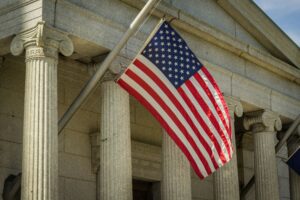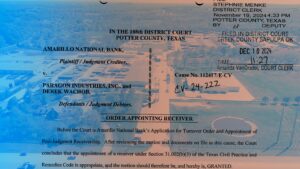Editors Note: While our guidelines state we won’t usually publish an Op-Ed from outside our demographic of Creek County, we felt this one warranted your attention given the financial crisis in our state at this time.
It has now been 25 years since Oklahoma voters approved State Question 640 in March of 1992 to amend the state constitution to require either a majority vote of the people in a general election or a three-fourths vote of both legislative chambers to approve any tax increase. Because it is nearly impossible to get three-fourths of the Legislature to agree on anything controversial—and raising taxes will always be controversial—it is time to repeal SQ 640 to give our duly elected government the necessary flexibility to help solve our state’s long-term revenue problems.

SQ 640 began as an initiative petition backlash against the income and sales tax increases contained in the Education Reform Act of 1990, better known as House Bill 1017. These increases followed on the heels of successive sales tax, motor fuel tax, and cigarette tax increases enacted during the 1980s. Governors of both political parties, Democrat George Nigh and Republican Henry Bellmon, determined that tax increases were necessary along with spending cuts to shore up the state budget during the depths of the 1980s oil bust.
Since the approval of SQ 640, tax policy in Oklahoma has been a one-way street. The Legislature has cut income and gross production tax rates with a simple majority vote, but it is structurally next to impossible to change course and raise revenue, no matter how dire the budget situation.
While Oklahoma’s general revenue has continued to grow despite the rate reductions, the reality is that when inflation and net population growth are considered, it is actually very difficult for any state to take in less money in subsequent budget years, except in times of economic recession. The core question is whether that revenue growth is able to adequately provide for the public goods and quality of life expectations of a growing, modern population.
Oklahoma has one of the lowest overall tax burdens of any state. That’s not a bad thing. However, it takes continued public investment to build and maintain the roads, schools, and public services that make a state attractive for people to live, work, and raise a family. It’s an arms race among states, and we are not winning it.
Repealing SQ 640 would make it feasible for the Legislature to fashion comprehensive plans involving broad-based revenue enhancements. Will we all like the plans that might emerge? Of course not. Will the Legislature pass ill-conceived revenue bills from time to time that may have to be revisited? Yes, but that is always the case with public policy.
By lowering the threshold to a simple majority, the normal legislative process concerning revenue can unfold as it does in most other states and as it used to in Oklahoma prior to 1992. Taxes will be increased and decreased over time according to public pressures, economic conditions, and evolving needs.
Conventional political wisdom has been that SQ 640 is here to stay. But if our current Legislature is truly serious about solving Oklahoma’s long-term budget problems in a balanced, thoughtful way, it is time for our elected leaders to have the courage to do what is right for Oklahoma and send a legislative referendum to the voters at the next general election to repeal SQ 640.
Berrong, of Weatherford, is vice president of the Ed Berrong Insurance Agency and a former staffer for former U.S. Rep. Dan Boren.









